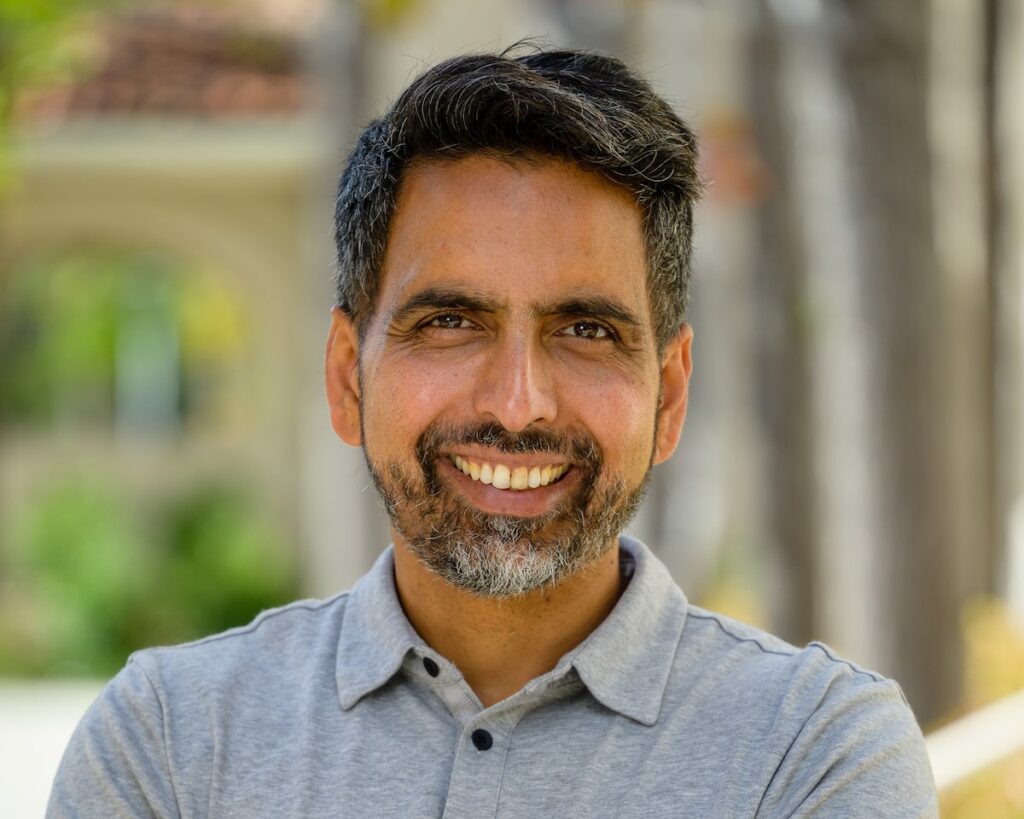Salman Khan is the founder and CEO of Khan Academy, and his latest book is Brave New Words: How AI Will Revolutionize Education (And Why That's a Good Thing).
As the founder of a nonprofit that provides free online learning, I’m known by many as someone who is involved with technology and education, and one of the most common questions I get asked is how I use technology with my kids at home.
Before I offer any advice, I want to be clear that I don't have it all figured out. My wife and I are doing our best, but no one has the perfect answers and every family situation is a little different.
We take the potential harms of social media and mobile devices very seriously. We don't believe that the companies that developed social media had any intent to cause harm 20 years ago, or even now. But the AI that's being used to serve videos, ads and posts to us and our children has found that the things people keep clicking on are often provocative, divisive and anxiety-inducing. Over the past few years, there has been ample evidence to show that they are causing significant harm to this generation that has grown up with mobile devices and social media.
We won't take any chances. So far, we've kept our kids off social media. Our oldest son, who is 15, has a cell phone, but we see it primarily as a tool to keep in touch when he's out and needs to reach us. He doesn't say he wants to be on social media and we plan to keep it that way.
It's important to remember that technology isn't necessarily bad. In fact, I've dedicated my life to using technology for good. I founded Khan Academy as a nonprofit in 2008 with a mission: to provide a free, world-class education to anyone, anywhere. I believed technology was making this increasingly possible. Tools like the internet, software, on-demand video, and now AI allow us to scale personalized education that was once the privilege of only a few.
So, in my opinion, good uses of technology include online learning, coding, writing, video editing, and creating digital art. When students use technology to code, write, and create art, they become active participants in their learning, not passive recipients. These are also important skills for life. For older students, working on these projects for a few hours on the weekend and diving deep into them is not a problem for most parents.
Moderation is key. My sister was an avid reader as a child and would read for 16 hours straight if allowed. Reading is great, but excessive reading can get in the way of other important activities. Similarly, productive technology use needs to be balanced so it doesn't replace outdoor play, socializing, and family engagement.
AI brings a new dimension to this effort. For example, with Khan Academy, AI allows my kids to take part in simulations and have conversations with historical figures to gain a deeper understanding of the subject matter. These interactions go beyond rote learning and help develop critical thinking skills. This AI doesn't help kids cheat, it provides Socratic guidance.
AI also brings new drawbacks, especially when combined with social media. AI-generated deepfakes will be used for the worst forms of cyberbullying. AI will be used to lure young people over the internet, primarily through social media. Don't be surprised if in the next few years you start getting calls from something that sounds like your child, or your child starts getting calls from something that sounds like you. As an added precaution, all families should start keeping secret passwords now to test whether the “thing” calling them is a family member or an AI.
So overall, our approach to technology in our home is about balance and intentionality. We aim to harness technology's educational and creative benefits while protecting our children from its potential harms. We encourage our kids to participate in real-world activities and maintain open communication about their digital experiences. Most importantly, my wife and I strive to do as much as we can for our kids away from technology.



